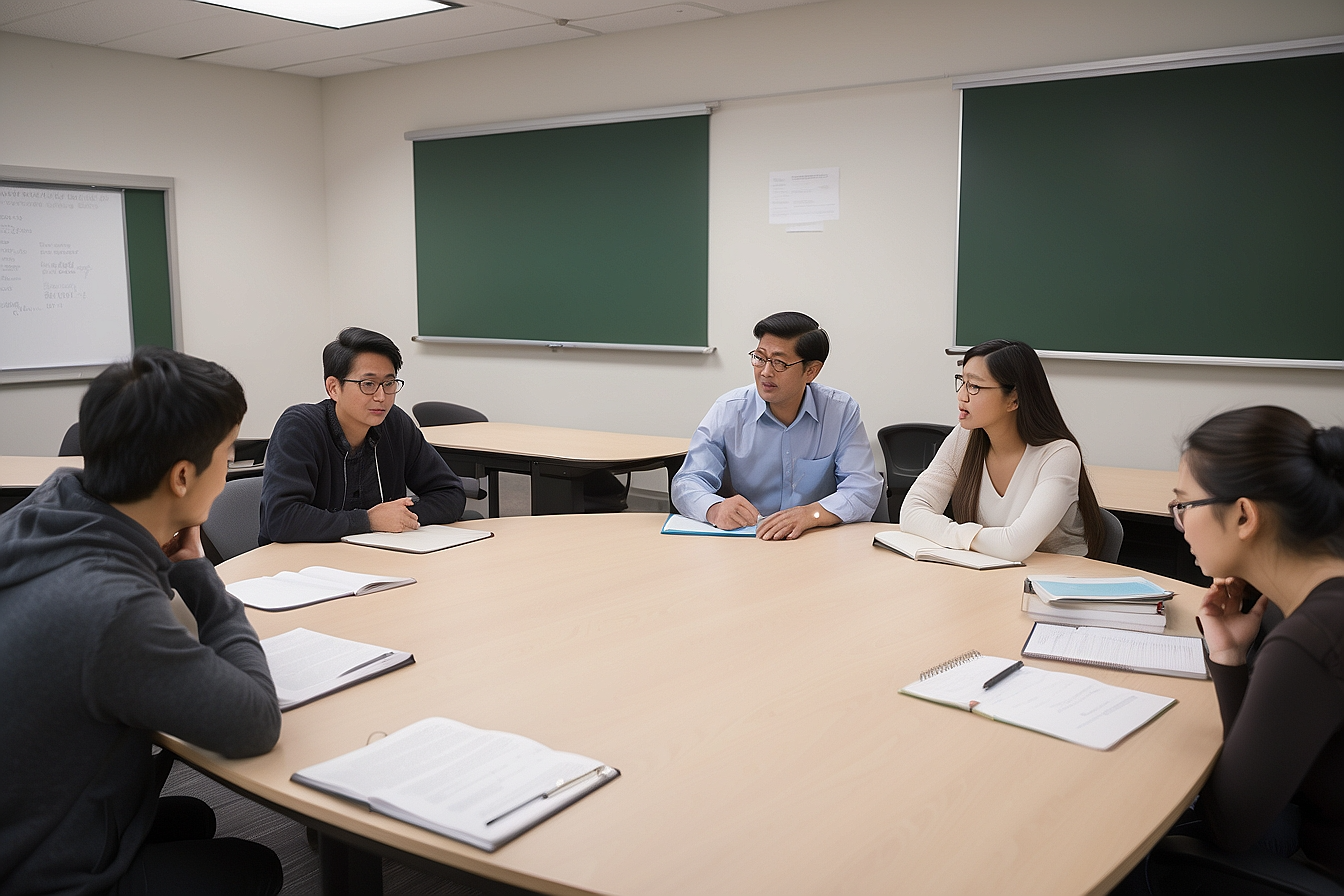| Name | Description |
|---|---|
| Reed College | Intellectual rigor, small classes, and emphasis on independent study |
| Swarthmore College | Collaboration, discussion-based learning in a smaller setting |
| Grinnell College | Strong student-faculty relationships, self-governed community |
| Carleton College | Collaborative learning, quirky traditions, and a strong sense of community |
| Yale University | Residential colleges foster close-knit communities within a larger university |
| Rice University | residential college system promotes smaller social circles |
| Harvard University | residential house system, creating smaller social units within a prestigious university |
| California Institute of Technology (Caltech) | Haven for science and engineering enthusiasts, opportunities for deep dives into research |
| Massachusetts Institute of Technology (MIT) | It focuses on collaboration within specific fields and attracts students passionate about their field |
| University of Chicago | Rigorous academics and intellectual atmosphere |
Looking for the best universities for introverts? Finding the right academic environment is crucial for introverted students to thrive. Historically, universities have focused on extroverted learning styles, but times are changing. Today, some schools and colleges cater specifically to introverted individuals, providing personalized attention in a supportive and conducive atmosphere for their unique needs. These universities offer smaller class sizes, quiet study spaces, and opportunities for independent learning. By choosing a university that understands and accommodates introverted traits, students can excel academically while feeling comfortable and valued in their educational journey.
Key Takeaways
- Choose universities with smaller classes and quiet study spaces to cater to introverted traits.
- Consider degree programs like computer science, psychology, or graphic design that offer independent work options.
- University choices like Stanford University or Massachusetts Institute of Technology provide introvert-friendly environments.
- Develop a routine that includes alone time, recharge breaks, and self-care activities for a balanced college experience.
- Utilize online networking platforms and informational interviews to connect with professionals in a comfortable setting.
- Engage in clubs related to personal interests or academic pursuits to meet like-minded individuals and build a supportive community.
Key Characteristics of Ideal Universities

Innovative Housing
Universities that cater to introverts often offer innovative housing options such as dorms such as single rooms or quiet living communities. These spaces on campus provide students, especially nerdy introverts, with the privacy and solitude they need to recharge after a day of classes.
Vibrant Student Life
In addition to providing quiet living spaces, the best colleges for introverts on campus also boast vibrant student life opportunities. This campus life includes activities catering to various interests, ensuring that students can socialize at their own pace.
Diverse Extracurricular Activities
When choosing a university, it’s essential to consider the availability of diverse extracurricular activities. From book clubs to nature walks, having a range of options allows introverted students to engage in activities that align with their interests and comfort levels.
Small Class Sizes
One key aspect that sets ideal universities apart from liberal arts colleges is their small class sizes. This enables students to engage more meaningfully with their peers and professors, fostering community within the academic environment.
Emphasis on Relationships
The best universities for introverts emphasize building relationships. These institutions prioritize creating connections between students and faculty members through mentorship programs or regular office hours.
Best Degree Programs for Introverts

Active Participation
When considering the best degree programs for introverts, looking for ones that encourage active participation is essential. These programs typically focus on group projects, discussions, and presentations to enhance students’ communication skills. Such activities can be challenging but ultimately rewarding for introverted individuals in developing confidence and teamwork abilities.
Seek out degree programs that balance individual work and group collaboration. This ensures that introverted students have opportunities to engage with their peers while of course also having time for independent study. By participating in group activities, introverts can gradually step out of their comfort zones and improve their social skills in a supportive academic environment.
Cultural Involvement
Cultural involvement is crucial in creating a well-rounded educational experience for introverted students. Look for degree programs that offer diverse cultural events, clubs, and organizations where students can explore different traditions and perspectives. Such activities allow introverts to broaden their horizons, gain new insights, and connect with like-minded individuals who share similar interests.
Consider universities that host cultural festivals, international nights, or language exchange programs to provide opportunities for introverted students to immerse themselves in various cultures. These experiences enrich their academic journey and foster a sense of inclusivity, community building and global awareness within the university community.
Hands-On Learning
Hands-on learning opportunities are invaluable for introverts who thrive in quieter and more reflective settings. Look for degree programs incorporating practical experiences such as internships, research projects, or fieldwork. These hands-on activities allow introverted students to apply theoretical knowledge in real-world scenarios, enhancing their understanding of the subject matter and building practical skills.
Universities with well-equipped laboratories, research facilities, or industry partnerships provide excellent avenues for introverted students to engage in hands-on learning experiences. By immersing themselves in practical projects, introverts can deepen their expertise, build confidence in their abilities, and prepare for future career opportunities.
Top 10 Universities for Introverted Students

Unique Housing Systems
University of Chicago: Known for its beautiful campus and unique housing systems, the University of Chicago offers introverted students a comfortable and private living environment. The university’s housing options cater to students who prefer solitude and quiet spaces.
Vassar College: With a strong emphasis on diversity, Vassar College provides introverted students with a welcoming and inclusive community. The liberal arts college that’s commitment to diversity ensures that every student feels accepted and valued.
Wide Range of Student Groups
Massachusetts Institute of Technology (MIT): MIT offers introverted students the opportunity to explore various student groups catering to various interests. This allows introverted students to engage in activities they are passionate about while still maintaining their personal space.
Stanford University: Stanford University offers numerous student organizations and clubs for introverted students to choose from. These clubs offer a platform for introverted students to connect with like-minded individuals in a more controlled and comfortable setting.
Emphasis on Diversity
Harvard University: Harvard University’s diverse student body creates a supportive college environment even for introverted students. The university’s commitment to inclusivity ensures that all students, including introverts, feel respected and valued within the campus community.
Yale University: Yale University focuses on fostering diversity and inclusion. Its welcoming Atmosphere allows introverted students to thrive academically and socially. The university’s diverse campus culture encourages introverted students to embrace their unique qualities.
Strategies for Thriving as an Introvert
Managing Social Interactions
Finding ways to manage social interactions can greatly benefit introverted individuals. One strategy is to set boundaries by politely declining invitations when feeling overwhelmed. Small group activities instead of large gatherings can create a more comfortable social environment.
Balancing Alone Time and Social Engagements
Balancing alone time with social engagements is essential for introverts. It’s crucial to prioritize self-care and recharge when needed. Creating a schedule that includes social events and personal time can help maintain a healthy balance.
Thriving Academically and Socially
Introverts can utilize various techniques to thrive academically and socially. Participating in study groups with a few close friends can enhance learning while maintaining a sense of comfort. Joining clubs or organizations that align with personal interests can foster meaningful connections with like-minded individuals.
Networking Tips for Introverted Students
Meaningful Connections
Building meaningful connections is essential for introverted students. Instead of attending large social events, opt for smaller gatherings or one-on-one interactions. This allows for more intimate conversations and helps in forming deeper relationships.
Creating a study group with a few classmates can be a great way to connect with others in a comfortable setting. Nerdy kids and introverts can bond over shared academic interests, making networking feel less intimidating.
Utilize Technology
For introverted students, leveraging technology can be a game-changer in networking. Online platforms and social media provide opportunities to connect with peers without the pressure of face-to-face interactions.
Joining online forums or virtual study groups allows students to engage with others at their own pace. This method suits those who prefer written communication over verbal exchanges.
Authenticity over Quantity
When it comes to networking, quality trumps quantity for introverted students. Focus on building genuine connections rather than trying to interact with many people. Authenticity fosters trust and leads to more meaningful relationships.
Engage in conversations that align with your interests and values. You attract like-minded individuals who appreciate your unique qualities by staying true to yourself.
Comfort Zones
Stepping out of your comfort zone is important for growth, but respecting personal boundaries as an introverted student is equally crucial. Find networking opportunities that allow you to showcase your strengths without feeling overwhelmed.
Attending small workshops or seminars related to your field of interest can provide a conducive environment for networking. These settings offer a balance between professional development and social interaction allowing students.
Joining Clubs and Organizations

Finding Alignment
Joining clubs and organizations provides a great opportunity for introverted students to connect with others who share similar interests. Introverts can feel more comfortable and confident in social settings by engaging in activities that resonate with personal passions. These spaces offer a sense of belonging and understanding, fostering meaningful connections.
Building Connections
Student organizations serve as platforms where introverts can interact with like-minded individuals in a more relaxed environment. These clubs create a supportive community where members can engage in discussions, projects, and events centered around shared hobbies or causes. Through these interactions, introverted students can build lasting friendships and professional relationships.
Personal Growth
Joining clubs that align with one’s interests facilitates social connections and contributes to personal growth. Introverts can explore new skills, hobbies, and perspectives within these organizations, stepping out of their comfort zones in a safe and familiar setting. This exposure to diverse experiences enhances self-confidence and broadens horizons.
Managing Social Interactions

Setting Boundaries
Establish clear boundaries to protect your time and energy from excessive social demands. Communicate your needs assertively but respectfully to maintain a healthy balance.
- Prioritize self-care by scheduling alone time for recharging after social interactions.
- Avoid overcommitting to social events to prevent burnout and maintain mental well-being.
Navigating Group Projects
When working in groups, contribute your ideas thoughtfully while respecting others’ perspectives. Engage in active listening during discussions to foster effective collaboration.
- Allocate tasks based on individual strengths within the group to optimize productivity.
- Utilize online platforms for seamless communication and coordination throughout the project.
Strategies for Academic Settings
Focus on the learning opportunities provided by group activities to maintain a positive attitude. Participate actively in class discussions to build confidence in social interactions.
- Seek out study partners or form small study groups with like-minded classmates for mutual support.
- Balance social interactions with personal study time to optimize academic performance.
Personal Development Opportunities

Skill Development
Universities offer research opportunities that allow introverted students to delve into their academic interests deeply. Individuals interested can enhance their analytical and critical thinking skills by engaging in research projects.
Attending career fairs and workshops at school provides introverts with the chance to explore various professions and industries. These events offer valuable insights into different career paths, helping students make informed decisions about their future.
Leadership Growth
Seeking out personalized attention from professors can greatly benefit introverted students. Building relationships with faculty members can lead to mentorship opportunities, guidance on academic pursuits, and valuable career advice.
Participating in extracurricular activities enables introverts to step out of their comfort zones and develop essential leadership skills. Involvement in clubs, organizations, or volunteer work fosters teamwork, communication, and problem-solving abilities.
Self-Awareness Enhancement
Embracing the diversity within university campuses exposes introverted individuals to various perspectives and experiences. Interacting with people from different backgrounds promotes empathy, tolerance, and cultural awareness.
Attending campus events allows introverts to gradually increase their social interactions while maintaining control over their environment. From small gatherings to larger functions and parties, these occasions provide opportunities for personal growth and networking.
Summary
After exploring the key characteristics of ideal universities for introverts, the best degree programs, top 10 universities, strategies for thriving, networking tips, joining clubs, managing social interactions, and personal development opportunities, you now have a comprehensive guide to navigate your academic journey as an introverted student. Understanding your strengths and preferences allows you to tailor your university experience to suit your needs and enhance your personal growth. Remember to embrace who you are, seek out supportive environments, and take advantage of the resources available to you. Your success as an introverted student is within reach with the right mindset and approach.







Leave a Reply